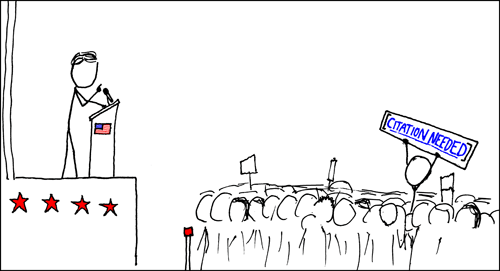
I have spent a ridiculous amount of time this summer reading software licenses. Ultimately, a lawyer would have to be the final judge about what I can and cannot use, but it’s helpful for me to know when it is worth taking to the lawyer at all. Depressingly, a little knowledge can often tell you that it’s not.
For instance, there was a library that looked useful, but the license said: “this code must not be used for evil”. And so I abandoned it. Not because I have any evil intentions or because IBM is, in any way, an evil company – and, as a friend pointed out, how on earth would you argue what is and isn’t evil anyway. However it makes the license non-free by breaking freedom 0: The freedom to run the program, for any purpose.
There’s not enough on OSS in university. I learned almost nothing about it during my undergrad, but took a grad course on OSS – the most helpful thing? The ability to read licenses, know what they mean, and what I can combine with what. This has been so useful to me this summer – it shouldn’t be the company lawyer’s job to educate me, or my manager’s job. I think the university should do it, and if they fail then students need to take care of it ourselves.
This gap in the curricula is one of the reasons why I think Andrew Ross’s work with FOSSLC (Free and Open Source Software Learning Center) is so important. It’s about educating people in OSS, highlights of what I’ve learned at the events I’ve attended has been: OSS licenses, OSS as a business model and also the cool projects that I could potentially contribute to.
August 14th will be this years Open Source Technology showcase. If you haven’t already and you’re in Ottawa and at all interested in Software Development I suggest you sign up here (list of speakers). Hope to see you there!!
For referrals, my email id is catehuston and I use gmail.
5 replies on ““Must Not Be Used for Evil” and Other Things CS Students Need to Know About OSS”
[…] This post was mentioned on Twitter by Cate Huston, Jennifer Lee. Jennifer Lee said: RT @kittenthebad: Accidentally in Code: "Must Not Be Used for Evil" and Other Things CS Students Need to Know About OSS http://bit.ly/bViNcz […]
[WORDPRESS HASHCASH] The comment’s server IP (208.74.66.43) doesn’t match the comment’s URL host IP (74.112.128.10) and so is spam.
Hello!
An interesting post and one that makes you think, of course. I'm all for OSS and freedoms, but I can see where the author of the library you mentioned is coming from.
I am reminded of the stories of Alfred Nobel who invited dynamite to help in mining and infrastructure efforts or the geophysicist (name forgotten) who spent much of his life in the boreal forests of Alberta attempting to work out how to extract oil from the sands under the soil and after, told his son he could not return to those (now decimated) forests to see the destruction that he had inadvertently caused.
Thoughts?
I think software is different, because once code is in the open, whatever the license, people can always use it and break the license anyway. If someone was genuinely evil, I'm sure breaking the (subjective) conditions of a software license would be the least of their concerns, like “Oh damn we were going to build this thing and annihilate these people, but then we realized we'd be breaking the conditions of this software license so we're going to delay our plan by 1-3 months whilst we replicate the functionality of the library we need”.
Opening up your code (or writing, or pictures, with cc-attribution) means that people can use your work for other purposes than you intended. They might do something that you disagree with, but the hope is that they take your work and build on top of it to create something new that you would never have created yourself.
If you want that to happen, a standard software license makes life easier for everyone.
I did a bunch of research in June on OSS licensing, and I remember seeing that “No Evil” clause and reading that it was incompatible with other copyleft licenses.
It's a little bit sad when someone puts something a bit quirky like that into a legal document, and then suddenly it breaks compatibility with other projects. I wonder if law is humorless, or if it has its own brand of ironic humor written between the lines?
I think the law is humorless, but that might just be because I find it so dull 😉
But yes – it seems like it's just a small thing and yet the ramifications for usage are significant!